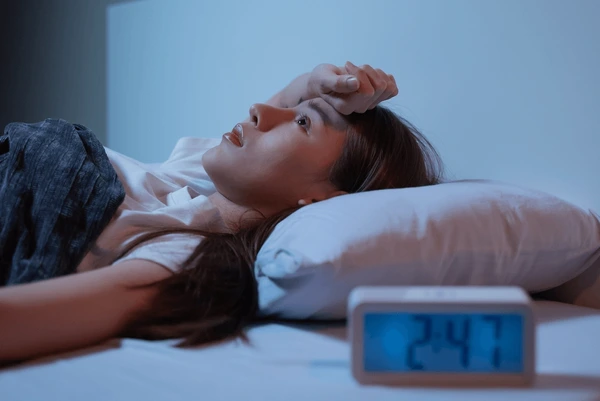When Perimenopause Starts Ruining Your Sleep
Waking up drenched in sweat, tossing and turning through the night, or suddenly finding yourself wide awake at 3am? You’re not alone. Many women in their 40s and early 50s experience disrupted sleep- one of the most common and frustrating symptoms of perimenopause, the natural transitional phase before menopause.
What Happens During Perimenopause
Perimenopause typically begins several years before menopause, as the ovaries gradually produce less estrogen and progesterone. These hormones play a vital role in regulating sleep, mood and body temperature. When levels fluctuate, they can throw your sleep cycle off balance.
Hot flashes, night sweats and sudden awakenings are the classic culprits-but that’s not all. Anxiety, mood changes and even mild depression during this phase can add to restless nights. The results? Fatigue, irritability and difficulty concentrating the next day.
Why Sleep Becomes So Hard
Estrogen helps to control and regulate a woman’s body temperature. As its level dips, the body may misfire- making you feel overheated even in a cool room. Meanwhile, level of progesterone(Which exerts natural sedative effect) also declines, making it harder to fall and stay asleep.
In addition, perimenopause can increase the risk of sleep apnea, a condition where breathing pauses during sleep, leading to repeated awakenings and daytime tiredness.
How to Sleep Better During Perimenopause
While you can’t stop hormonal changes, you can ease their impact on your nights:
- Keep your bedroom cool and airy. A fan or light blanket helps manage night sweats.
- Avoid caffeine and alcohol close to bedtime- consumption of either one or both can disrupt deep sleep.
- Exercise regularly but finish workouts at least 3 hours before bed.
- Stick to a routine. Go to bed and wake up at consistent times daily.
- Try relaxation techniques like deep breathing, stretching or mindfulness before bed.
- Dress lightly and consider moisture-wicking sleepwear.
- Stay hydrated throughout the day but reduce fluids just before bedtime to avoid bathroom trips which disrupt sleep.
If these steps don’t help, it’s worth consulting a doctor. They can check if your symptoms are linked to hormonal changes or other underlying conditions such as thyroid imbalance, sleep apnea, or anxiety disorder.
Treatment Options to Explore
Doctors may recommend lifestyle adjustments, Cognitive Behavioral Therapy (CBT), or in some cases, hormone therapy to ease symptoms. Herbal remedies like black cohosh and soy isoflavones are popular among women, but these should be discussed with a healthcare professional before starting- especially if you have pre-existing medical condition(s) or taking prescription medication(s).
Takeaway
Perimenopause is a natural life phase, not a disease- but it can take a toll on your energy, mood and quality of life if left. untreated. The good news? With awareness and proper management, restful nights are possible again.
Need Professional Advice or Quick Access to Medication?
If sleep disturbances, mood swings, or hot flashes are affecting your daily life, visit Dr Kart’s smart medical vending machine at Shell Tampines Ave 2 – your convenient healthcare pit stop.
You can consult a licensed doctor online 24/7,get your prescriptions filled, and collect your medication within minutes– all in one place. Because better sleep begins with better health.




